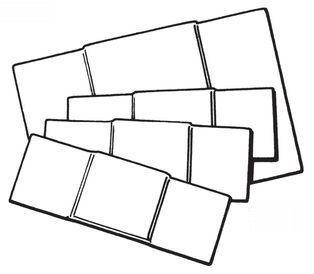SAS Urban Survival Handbook (4 page)
Read SAS Urban Survival Handbook Online
Authors: John Wiseman
Tags: #Health & Fitness, #Reference, #Survival, #Fiction, #Safety, #Self-Help, #Personal & Practical Guides, #General, #Survival Skills

Counselling
A problem shared is a problem halved. DON’T let problems build up inside you. DON’T hold grudges and brood about things. Hard though it may seem, it’s better to ‘bite the bullet’ and get the problem out into the open with the people concerned rather than bottle everything up to explosion point. Discuss worries with a close friend. If you don’t feel you can share your problems with anyone you know, seek professional counselling and help-groups. It is often easier to get a new perspective on problems with people who don’t know you.
Fear
Fear is an element in most forms of mental stress—fear of the unknown and the known, fear of not being able to cope, fear of violence. It is not something to be ashamed of, but you must NOT let it build up out of proportion. Fear is a natural emotion and not necessarily harmful. When people are suddenly very afraid, they can run faster, jump higher and do things they never thought possible. This is due to the adrenalin the body produces in a stressful situation. It can make feats of superhuman strength achievable.
Fear can even be an asset. It makes you wary and more alert on the streets, for instance. Don’t try to eliminate it with false courage or deny its existence.
Panic is fear that gets out of control. You MUST control panic—it can be disastrous. You must learn to use fear and anxiety—not let them use you. Don’t let your imagination run riot and conjure things to be scared of. Assess the real situation and confront it.
Learn to think and plan when you are afraid. One way is to enrol on a survival course and be put under pressure while being carefully monitored. You must get to know yourself.
The violent city
For many people the greatest threat in city life is that of violence. Media reports suggest that muggings and other violent assaults have increased considerably in recent years. At the same time, people seem less and less prepared to go to the help of others. There is not much point in exposing yourself to serious physical risks if you can’t really help. You can, however, at least call the police or an ambulance. Too many people don’t even do that—they don’t want to be ‘involved’.
Avoid violence. Don’t make yourself vulnerable—use your common sense—but don’t shut yourself indoors. What is the point of being in a city if you cannot enjoy city life? Be sensible about where you go alone, especially at night. Know your city, avoid any areas known to be dangerous. Be aware of local problems and don’t provoke violence by your behaviour. Wearing a football team’s colours and shouting abuse about the other side’s supporters is a sure way to get your nose flattened. Don’t take short cuts through dark alleys.
Sometimes attack comes out of the blue. That’s when it is useful to have some knowledge of self-defence. Follow the basic advice given later (see SELF-DEFENCE), but think about taking a proper course. You’ll learn much better from an instructor than from any book—but don’t expect an attacker to keep to the rules. You may need to let fly with everything you’ve got. Learn how to use your natural weapons.
Terrorism and armed violence
The use of terrorism for political ends has been a growing problem in recent years. We have to learn to live with it and to be vigilant. Whilst you cannot deal with bombs and suspect packages and vehicles personally, you can report any suspicions and let the experts sort them out. Be alert. Learn what the procedures are for hostile action against your workplace, whether by terrorists or armed robbers, so that you will be able to respond rapidly and calmly.
Catastrophes
There are some situations that really are beyond our control, from train crashes to natural disasters. That does not mean that you cannot be prepared for them. Developing your own skills and reactions will help you to avoid accidents and enable you to assist others who are involved in them.
If you live in places where earthquakes, floods or hurricanes could strike, you must learn to prepare for them, evacuate as necessary or deal with the aftermath. As with everything else in life, awareness, knowledge, confidence, training and experience will set you up to be a good survivor.
Being prepared
You are what you think you are. You will achieve what you think you will—at least, you have little chance of achieving ANYTHING if you don’t believe you can! Other people will have widely different opinions about you, but it is what YOU really think of yourself that matters. Confidence in yourself and selfknowledge must be backed up by what you have learned about your city and how to deal with situations.
Of course, no two problems are identical. There is no advice that can cover EVERY situation. Develop the ability to take in and assess a situation quickly, then apply a calm and logical solution based on what you know and what you have learned. No one can hope to do better than that.
SURVIVAL KIT FOR THE CITY
Equip yourself to deal with small day-to-day problems. If you know what your programme is for the day, you will carry what you need—but you should also carry an emergency kit to cope with some of those unforeseen occurrences. It need not take up much space—a small tin like a tobacco tin is ideal, but you shouldn’t smoke the tobacco! Always carry your kit with you and it will see you through many a crisis. With it you can (at least):
- ■
Repair a tear - ■
Sew on a button - ■
Pin a broken zip - ■
Remove a splinter from your finger - ■
Read a telephone book/street map in poor light - ■
Attract attention - ■
Make notes - ■
Leave a message - ■
Get rid of a headache - ■
Pay for a taxi-ride - ■
Make an urgent phone call - ■
Cover a cut or graze
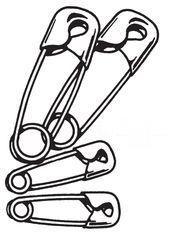
Safety pins
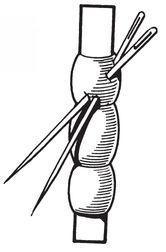
Needle and thread
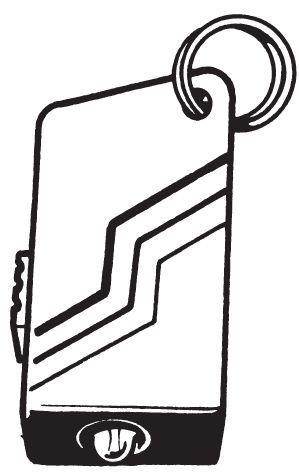
Tiny torch

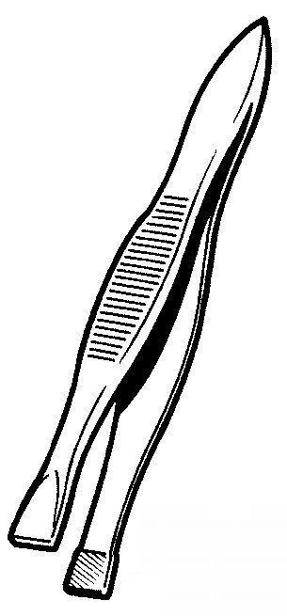
Tweezers

Aspirin/Paracetamol

Lens
